Lebanon
The Presbyterian Church (U.S.A.) has been involved in Lebanon since the early 1800s through missionaries from the Reformed tradition who worked there in education and health care. In 1956 the national church, known as the National Evangelical Synod of Syria and Lebanon, assumed total charge of the ministries of the Presbyterian churches.
Lebanon is the only country in the Middle East in which religious freedom is constitutionally protected.
We continue to support our partners who work in Lebanon in their efforts.
The Jinishian Memorial Program in Lebanon began in 1966 to meet the physical and spiritual needs of the post-genocide Armenian population. The local Beirut mission team brings high quality health and social services to the most vulnerable and builds ecumenical partnerships with Apostolic, Catholic and Evangelical churches.
About our work
Elmarie Parker
Elmarie Parker serves as regional liaison to Iraq, Syria and Lebanon. The heartbeat of her work is to help deepen and strengthen the relational ties between the church in her region and the church in the United States and to develop the practical ministries that are birthed from these relationships. More specifically, she facilitates Presbyterian Church (U.S.A.) support for partner programs and activities and implements partnership strategy. Elmarie assists in strengthening healthy, effective and appropriate relationships among entities of the PC(USA) and those of partner denominations and organizations in the region. This often takes shape through PC(USA) group solidarity and learning visits to Syria, Lebanon and Iraq facilitated by Elmarie. Additionally, Elmarie supports other PC(USA) associates serving in this region through communications, information sharing, mentoring/guiding, encouraging and reflection.
For more information, please read Elmarie's profile page.
National Evangelical Synod of Syria and Lebanon (NESSL)
Begun in 1823, the NESSL is one of the earliest active and continuing overseas mission outreaches for the Presbyterian Church (U.S.A.). This mission is responsible for planting churches throughout Syria and Lebanon translating the Bible into Arabic and creating world-class educational institutions. The schools include American University at Beirut, Lebanese American University and some 20 elementary and secondary schools. The Synod established health institutions that still flourish today. The Presbyterian church is challenged with rebuilding its membership after a 17-year civil war in Lebanon and devastating conditions resulting from recurring Middle East conflicts.
The NESSL owns and operates an excellent conference center known as Dhour El Choueir Conference Center. The center is thriving with activities for children, youth, women and families. It is also a popular location for conferences and retreats. The Synod considers Dhour El Choueir Conference Center to be a major locus for continuing education of clergy and laity. (Note: If you would like more information on Dhour El Choueir Conference Center — availability, rates, etc. — please visit the Synod’s web site at http://en.synod-sl.org/.)
The Near East School of Theology (NEST) is a high-level theological seminary located in Beirut. With roots tracing to 1835, NEST was actually founded in 1932 with the merger of two theological schools: one from Turkey and one from Lebanon. “NEST has always been multi-national, multi-confessional and, multi-cultural,” (George F. Sabra, Truth and Service: A History of the Near East School of Theology, Librarie Antoine: 2009, p. 125) serving Presbyterians, Congregationalists, Lutherans and Episcopalians from Lebanon, Syria, Palestine/Israel, Turkey, Iran and several African nations. NEST is committed to providing top-quality education and training to Arab, Armenian, other Middle Eastern, African and European church leaders. NEST prepares individuals for pastoral, academic and other church leadership positions throughout the region.
The Fellowship of Middle East Evangelical Churches
The FMEEC is the family of Protestant Churches, which includes primarily the Reformed, Episcopal, Lutheran, Congregational and Methodist churches across North Africa, the Nile Valley (including Egypt and the Sudan), Western Asia (Syria, Lebanon, Jordan, Israel and Palestine), Iran, Iraq and the Gulf States. The contribution of these churches to the larger ecumenical movement is enormously disproportionate to their relatively smaller numbers. In this Fellowship, emphasis is laid on leadership development, Christian unity and service.
The Middle East Council of Churches (MECC)
Presbyterian Church (U.S.A.) has been a strong partner and supporter of the work of the MECC since its inception in1974. The Council includes all four families of churches in the Middle East, i.e., the Eastern Orthodox Churches, the Oriental (non-Calcedonian) Orthodox Churches, the Catholic Churches (Latin and Eastern Rites), and the Evangelical Churches (Reformed, Episcopal, Lutheran and Congregational). It works on issues of church unity, Christian presence in the Middle East, justice, peacemaking and reconciliation, dialogue with non-Christian neighbors, education, nurture and renewal, participation of youth, women and children, life and service, and Palestinian refugees and other displaced persons.
Iraq Partnership Network
The Iraq Partnership Network continues the long history of Protestant activities that began in 1830 with European and American Christians living in the areas of the Ottoman Empire known as Mesopotamia. During the 20th century Presbyterians, together with the Reformed Church in America and the United Church of Christ, cooperated in the United Mission in Iraq. The network’s vision is to continue this tradition of cooperation with the RCA and UCC by raising the voices of Reformed churches to work toward God’s just peace in Iraq.
The Iraq Partnership Network is among more than 40 mission networks that connect Presbyterians who share a common mission interest. Most participants are involved in mission partnerships through congregations, presbyteries or synods. Network members come together to coordinate efforts, share best practices and develop strategies.
Mission co-workers serving in this country
Elmarie Parker - elmarie.parker@pcusa.org
